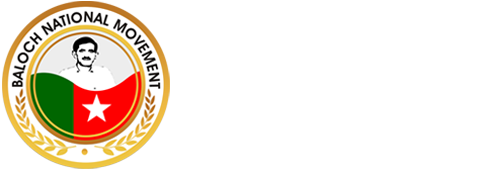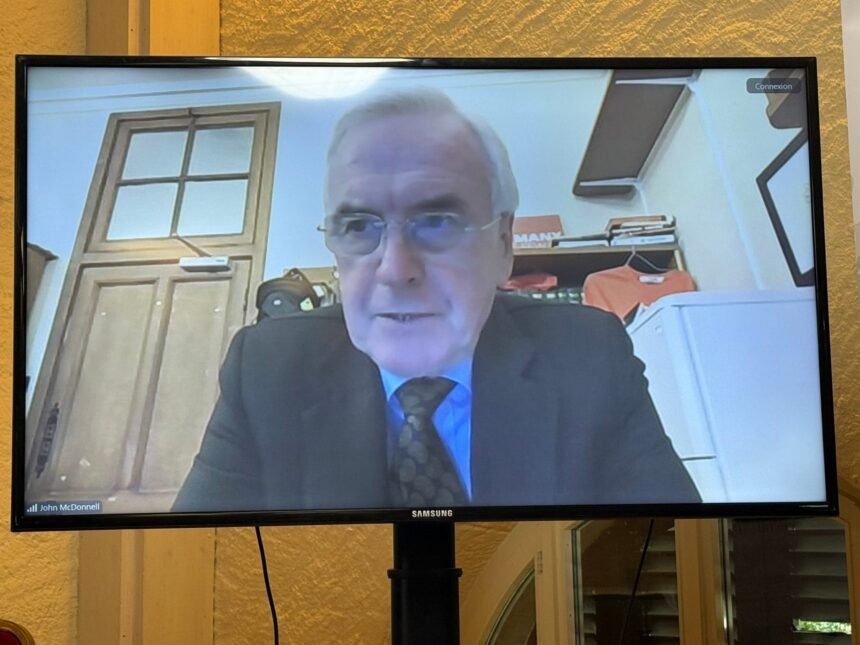Renowned British MP John McDonnell, speaking at the 7th Global Balochistan Conference in Geneva, said:
“From the perspective of the United Kingdom, our approach has been to press the UK government to recognise its responsibilities toward the Baloch people—both because of Britain’s historic involvement and, frankly, its neglect of this issue. I believe the present Labour government has a particular responsibility in this regard.”
The 7th Global Balochistan Conference was organised by the Baloch National Movement (BNM) and attended by numerous political figures, human rights activists, and intellectuals.
Despite his parliamentary commitments, John McDonnell participated online in the conference. In his address, he said:
“Our strategy has been to work with Baloch organisations in the UK to provide members of Parliament with as much information as possible, enabling them to apply pressure on government ministers. The aim is to wake the government up—to the human rights abuses taking place, to the exploitation of natural resources by the Pakistani government in collusion with China, and to the resulting poverty and suffering of the Baloch people.”
The UK government has tools at its disposal: it provides aid to Pakistan and maintains trade relations. Therefore, the questions we raise in Parliament are straightforward—what action can be taken, whether through aid conditionality or trade pressure, to protect the human rights of the Baloch people and their right to self-determination?”
The British MP informed the audience about his ongoing efforts to improve the situation in Balochistan:
“So far, our work has involved parliamentary questions, formal debates, and direct lobbying, where British-Baloch community members have come to Westminster to brief MPs with evidence of arrests, detentions, and disappearances. I believe this has begun to have an effect. For the first time in many years, government ministers are aware of these issues. Our next step must be to translate awareness into action—through further debates in Parliament, where ministers will be required to account for the government’s position and actions.”
He added that they are ensuring the names of those who have been arrested, detained, or tragically killed are placed directly before ministers so they cannot ignore the human reality of abuses by Pakistani authorities. Awareness is growing, but there is still a long way to go.
“Let me reaffirm my commitment: I, along with my colleagues, will continue to stand with the Baloch people. Our message is clear: end the human rights abuses, and uphold the principle of self-determination—a basic tenet of international human rights.”
He further stated that, following a recent cabinet reshuffle and the appointment of a new Foreign Secretary, meetings will be sought to press for a coherent strategy—both bilaterally and with European partners—to build international pressure on Pakistan. This must include defending the right to life, freedom of association, freedom of speech, and the freedom to determine one’s future.
In concluding his speech, he praised the BNM co-leaders for their tireless diplomatic efforts on behalf of the Baloch movement:
“I commend the Baloch co-leaders in the UK for their commitment and professionalism in lobbying Parliament and engaging with ministers. Their work has been invaluable, and together we will continue this struggle.”


